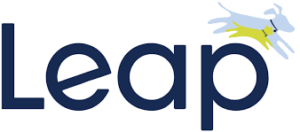Why apply to Leap?
Editor's Note:
Leap specializes in pet care startups, which for businesses in this unique niche can be a huge advantage. There are also network and expertise benefits that draw from multiple other industries.
Here’s what founders had to say about why they applied to Leap…
- Leap’s focus on supporting pet care startups aligned perfectly with one founder’s unique approach. This founder saw an opportunity to introduce something novel, and since their major customer base was in the US, joining a program like Leap seemed like an ideal fit.
- The ability to speak with experts, leading thinkers, and leaders in diverse industries was a huge draw.
- One founder said that Leap offered resources like Mars, which offered due diligence and expressed interest in their brand.
- Leap’s specific focus on pet care aligned perfectly with one founder’s mission and objectives. Their niche in pet care made them an ideal accelerator for them.

Andre Robert, Co-founder @ TobipetsWe wanted to be in an environment surrounded by other top founders and be challenged by the program.
What does application process look like?
Editor's Note:
Leap’s application process involves an online application, then multiple rounds of interviews. You’ll also need to have a pitch deck outlining your vision and financial plan.
Here’s what the founders had to say about the structure of Leap’s application process…
- It is a multi-stage process, starting with a form, some initial calls with one of the program managers, and then around five or six interviews.
- You submit a presentation deck to Leap outlining your vision and financial plan. Following this, you go through three to four rounds of interviews, culminating to a final pitch, where you have the opportunity to present our business and vision directly to the Leap team.
- You fill out an online form, and then there are interviews for those shortlisted.
How is Leap’s program?
Editor's Note:
Leap’s program is structured in two parts. The first part focuses primarily on workshops, in-cohort networking and mentorship, while the second half takes more of a consulting angle, focusing on how to refine a startup’s customer experience, marketing, and business approach.
Here’s what the founders had to say about Leap’s program…
- Each week consisted of a few meetings with the program managers, mentors, and contributors. The program was structured to provide founders with diverse insights and expertise.
- There were founder meetups, mentorships, one-on-ones, and many workshops. Then, toward the end, the second half was more one-on-one with a consulting strategy around the business, marketing, customer experience, etc.
- The latter part of the program focuses towards preparing for the pitch day. This preparation was especially beneficial as it helps in crafting presentations for retailers and investors, shaping the way you communicate.

Holly Ganz, Co-founder @ AnimalBiomeThe emphasis on preparing for demo days is a major component, which was also the case with IndieBio and other programs I’ve experienced.
How can you ace the application?
Editor's Note:
If you want to make the most out of your application, business growth and a unique concept are key. Overall, expect the process to be quick and to the point.
Here are some tips from the founders on how to ace Leap’s application process…
- Don’t be disheartened by initial rejections. Persistence pays off, and the process, in one founder’s case, was smooth, quick, and to the point.
- The key is to ensure that your concept stands out. Once you’ve found your niche and have a strong, unique idea, the application process itself is relatively simple.
- The main focus of these applications is usually on business growth, which is a key concern for investors.
Does Leap provide funding for equity?
Editor's Note:
Leap has multiple routes to provide funding. In some cases, the funding comes from partners of Leap, in others, the funding comes directly from Leap. The program does sometimes participate in seed rounds as well.
Here’s what the founders had to say about Leap funding support…
- One founder said that they received around $100,000 from Leap’s partners’ RGA, Mars’ investment arm (likely Kinship), and the non-profit MFA for equity.
- Another founder remarked they received $200,000 for future equity.
- One other founder expressed that Leap provided their first significant investment, which was a huge validation of our vision and future direction.
- A founder explained Leap participated in an ongoing seed round of $120,000 through the program.

Tadas Ziemys, Co-founder @ DogoThe key takeaway (from negotiating equity) is the flexibility within the negotiation process.
What are some standout aspects of the program?
Editor's Note:
Leap’s unique program structure provides an opportunity for founders both to expand their network and make significant progress with refining their business’s processes. In some cases, the results pay dividends, helping startups leapfrog what would have taken years of work without the program’s aid.
Here’s what the founders had to say about Leap’s standout features…
- Having influential partners invested in your success, like Kinship Mars, brought opportunities for collaboration, similar to having a big brother—someone interested in your success and offering meaningful connections.
- Leap’s structure provided confidence, like processes, finance, marketing, and how to approach customer experience, all added plenty of value.
- One founder expressed the program significantly advanced their brand’s design and content. It effectively fast-forwarded their development by two to three years, giving them a professional brand architecture, website, and messaging hierarchy.
Did you find anything challenging in the program?
Editor's Note:
Like any accelerator, the primary challenge with Leap is finding the time and resources to get the most out of the program. Do keep in mind it is a fully remote option and therefore timezone differences can pose an extra problem.
Here’s what the founders had to say about their challenges during the program…
- The remote aspect posed a challenge for one startup, especially when dealing with significant time zone differences.
- For another founder, balancing running their business and participating in the program was also challenging.
- Others discovered that finding enough time to participate in the program was also difficult.
Final advice to consider before joining Leap?
Editor's Note:
If you’re considering applying to Leap, there are a couple of primary points to keep in mind. First, the application process is intense. You may have to apply multiple times before getting accepted. Second, your network can make a huge difference in refining your application. Alumni can provide insights you might otherwise miss while preparing your application.
Here are the founders’ final tips about Leap’s program…
- Persistence is key; it might take several attempts to secure a spot.
- Prepare as it is intense; you have to have dedication to it.
- Talking to alumni can provide valuable insights for those considering joining an accelerator. It helps if applicants to refine their goals and understand what they want to achieve through the accelerator.
- Networking is crucial, much like in job hunting. With potentially hundreds of applicants, having a network can make a significant difference in standing out and getting noticed.

